Opportunities Fund for Persons with Disabilities
Website: www.canada.ca/en/employment-social-development/services/funding/disability-opportunity.html
Through funding for organizations, the Opportunities Fund for Persons with Disabilities (OF) program helps people with disabilities prepare for, obtain and maintain employment or self-employment.
Employment and Social Development Canada (ESDC)/Service Canada accepts Opportunities Fund applications for local and regional projects on an ongoing basis.
The program offers a range of activities that can be tailored to meet the individual needs of people with disabilities.
Applications for funding for national projects are selected through a Call for Proposals process.
Eligible applicants include:
- Businesses;
- Organizations (including not-for-profit);
- Public health and educational institutions;
- Band or tribal councils, Aboriginal organizations; and
- Municipal governments.
Participants are recruited by the funding recipients.
To participate in the Opportunities Fund, individuals must:
- self-identify as having a permanent physical or mental disability that restricts his or her ability to perform daily activities;
- be unemployed;
- be legally entitled to work in Canada;
- not be eligible for assistance under Employment Insurance (EI) Part II employment benefits or any similar programs that are the subject of agreements with provinces, territories, or organizations, pursuant to Section 63 of the EI Act; and
- require assistance to prepare for, obtain and keep employment or self-employment.
Note: Persons with disabilities will be considered unemployed for Opportunities Fund eligibility purposes if, at the time of applying for assistance, they:
- are working less than an average of 20 hours per week and are capable of working more;
- are actively seeking employment or increased employment;
- are in receipt of a notice of imminent lay-off and are unlikely to be eligible for EI; or
- must leave their current occupation due to medical reasons and are unlikely to be eligible for EI.
Funding decisions are based on regional and local priorities, community needs, program terms and conditions, and available funding.
Opportunities Fund project activities can be supported individually or in combination, and should form part of the participant’s employment action plan. The following is a list of activities eligible for funding under the Opportunities Fund program:
- Providing financial support to employers to encourage them to hire persons with disabilities whom they would not normally hire;
- Providing financial incentives to persons with disabilities to encourage them to accept employment;
- Supporting projects to help persons with disabilities create jobs for themselves by starting a business;
- Supporting projects that provide persons with disabilities with opportunities through which they can gain work experience which will lead to on-going employment;
- Providing financial assistance to persons with disabilities to help them obtain skills for employment, ranging from basic to advanced skills;
- Providing financial assistance to persons with disabilities to help them access employment or employment services;
- Providing financial assistance to support special services and sinterventions tailored to meet the needs of persons with disabilities in order to facilitate their integration into employment; and
- Providing financial assistance to increase awareness of the needs of persons with disabilities by building employer and service provider awareness activities into projects.
Activities outlined in (e), which assist persons with disabilities in obtaining skills for employment, are subject to certain restrictions.
Financial assistance may be provided to cover all or a portion of the costs associated with operating and delivering approved activities.
Costs may include:
- employment costs including participant wages and related employer costs;
- overhead costs related to planning, organizing, operating, delivering and evaluating approved activities, including costs such as wages and employment-related costs for staff, licenses, permits, fees for professional services, disbursements for research or technical studies, costs related to research subjects, specialized services, arrangements or equipment for persons with disabilities, bank interest, utilities, materials, supplies, travel, insurance, rental of premises, leasing or purchase of equipment, costs of audits, evaluations and assessments, and costs of the central administrative functions of the employer/coordinator’s operations that are drawn upon to support agreement activities;
- costs associated with the workers’ compensation actual costs or assessment paid directly to the provincial/territorial workers’ compensation authority on their behalf for participants or administrative staff;
- all or a portion of the living expenses and tuition expenses of participants, and expenses related to providing specialized services, arrangements or equipment, dependent care, transportation and accommodation for participants;
- where funding is further distributed to ultimate recipients to carry out eligible activities, reasonable and proper administration costs incurred by the CC in administering the distribution of the contribution and monitoring and coordinating the implementation of eligible activities being carried out by the ultimate recipients; and
- participant costs such as: living expenses, disability supports, dependent care costs, transportation and accommodation costs, tuition costs, other instructional costs and other personal supports.
Capital costs for the construction of a building (other than repairs or renovations to support the participation of persons with disabilities) or the purchase of land or buildings are not eligible costs.
Project outcomes should focus on the labour market participation of persons with disabilities and the level to which the program helped them achieve greater employability and obtain employment. Expected results for Opportunities Fund projects should include:
- number of clients that have enhanced employability
- number of clients served;
- number of clients employed or self-employed; and,
- number of clients who return to school.
“Employability” is defined as the level of training, skills, experience, aptitudes and/or abilities that permit the client to obtain and retain employment.
